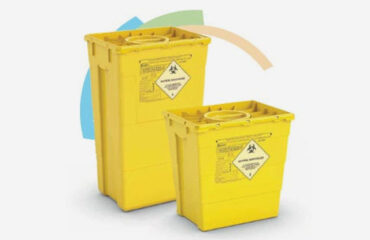Top Guidelines Of Reclaim Waste
Top Guidelines Of Reclaim Waste
Blog Article
All about Reclaim Waste
Table of Contents5 Easy Facts About Reclaim Waste ExplainedThe smart Trick of Reclaim Waste That Nobody is Discussing7 Easy Facts About Reclaim Waste DescribedUnknown Facts About Reclaim WasteReclaim Waste - An Overview
Residential sewage waste refers to the waste and items from a property septic container. The appropriate management and disposal of residential sewage waste call for liquid waste to be moved to a sewage therapy plant where the appropriate approaches and devices are used to cleanse and dispose of waste.
Business waste typically consists of potential risks, such as flammable materials or a mix of fluid and strong waste products, and requires an extra sophisticated and detailed disposal procedure. The disposal of commercial waste normally includes the purification of waste before transportation to make certain safe and proper disposal. Hazardous waste is developed from byproducts and runoff of industrial procedures and manufacturing.
This kind of waste can not make use of the same sewage administration transport or procedures as septic or business fluids. The commercial waste management process requires the assessment and screening of fluid waste prior to it undertakes the disposal process (liquid waste disposal melbourne). Overflow waste is the liquid waste that comes from drainage and excess stormwater in highly inhabited locations or cities
Overflow waste can cause contamination and flooding if not handled properly. Ensuring appropriate waste administration can avoid catastrophes and decrease ecological harm.
Getting The Reclaim Waste To Work
Get in touch with PROS Solutions today to learn concerning our waste administration and disposal services and the correct methods to care for the liquid waste you create.
(https://www.tripadvisor.in/Profile/reclaimwaste1)This supposed 'wastewater' is not only a vital source yet, after therapy, will be released to our land, rivers or the ocean. Made use of water from bathrooms, showers, baths, kitchen sinks, washings and industrial processes is recognized as wastewater.

water utilized to cool down machinery or clean plant and devices). Stormwater, a form of wastewater, is runoff that flows from farming and urban locations such as roofing systems, parks, gardens, roadways, paths and gutters into stormwater drains pipes, after rain. Stormwater streams neglected straight to regional creeks or rivers, at some point reaching the ocean.
All about Reclaim Waste
In Queensland, many wastewater is dealt with at sewer treatment plants. Wastewater is moved from domestic or commercial sites with a system of drains and pump terminals, called sewerage reticulation, to a sewage therapy plant. Regional federal governments build, preserve and operate most sewer treatment plants. Operators are licensed under the Environmental Management Act 1994 to discharge treated wastewater at an appropriate ecological standard right into rivers.
The Division of Natural Resources encourages local governments about handling, operating and keeping sewage systems and treatment plants. In unsewered locations, regional governments might call for owners to set up private or home sewage treatment systems to deal with domestic wastewater from commodes, cooking areas, shower rooms and washings. The Division of Natural Resources authorises making use of home systems when they are verified to be reliable.
A lot of stormwater receives no therapy. In some new subdivisions, therapy of some stormwater to remove litter, sand and crushed rock has actually started utilizing gross pollutant traps. Wastewater therapy happens in 4 stages: Gets rid of strong issue. Larger solids, such as plastics and other objects mistakenly discharged to sewage systems, are eliminated when wastewater is passed through screens.
Makes use of tiny living microorganisms recognizes as micro-organisms to break down and get rid of remaining dissolved wastes and great fragments. Micro-organisms and wastes are incorporated in the sludge.
Facts About Reclaim Waste Uncovered
Nutrient removal is not readily available whatsoever sewer therapy plants because it calls for expensive specialized equipment. It is coming to be more common in Queensland. Clear liquid effluent produced after therapy might still contain disease-causing micro-organisms. If this effluent is launched right into rivers such as rivers or the sea, the micro-organisms will at some point die out.

This generally suggests wastewater needs to be treated or contaminants removed prior to it can be released to rivers. Many wastewater flows into the sewage system. Under the Act, neighborhood federal governments administer authorizations and licences for eco pertinent tasks (Ages) including wastewater releases that could have a local impact. The division carries out approvals and licences to ERAs involving wastewater launches that could have a local or statewide impact.
Our Reclaim Waste Ideas
Otherwise, examples are considered research laboratory evaluation. Usually lots of industrial wastewater treatment tests are required to develop the levels of each of the various contaminants such as oils, heavy steels and chemicals in water. Surveillance provides accurate details regarding water high quality and can confirm that licence problems are being fulfilled. The details obtained through monitoring supplies the basis for making water top quality choices.
Report this page